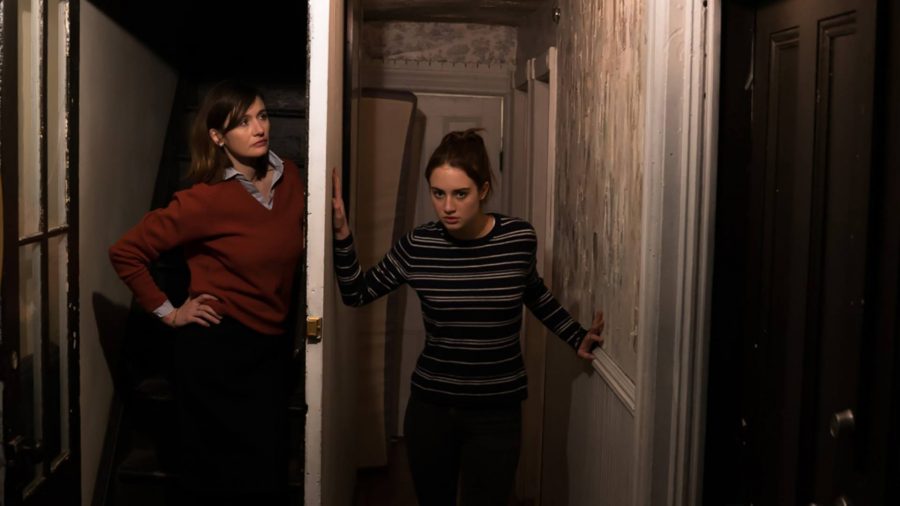Set in present-day Brooklyn and shot over only 10 days, Dolly Wells’ directorial debut “Good Posture” extends a generous empathy to each of its characters. The film, which premiered at the Tribeca Film Festival, is a tender deep dive into the vulnerabilities of its protagonist and supporting characters.
Protagonist Lilian (Grace Van Patten) is a flanneled, apathetic film school graduate living in Brooklyn. Riddled with a case of Peter Pan Syndrome, she has trouble acting like an adult; she doesn’t recycle properly, she gets in the shower without bringing a towel and she talks through movies. She also lives off of an allowance from her absent father as her film degree collects dust.
After a breakup with her boyfriend, she moves in, rent-free, with friends of her father. Don Price (Ebon Moss-Bachrach) is a laid-back musician who smokes weed with her in the backyard. His wife, renowned author Julia Price (Emily Mortimer), on the other hand, appears perpetually on edge and less-than-thrilled about their new houseguest. The night Lilian moves in, the couple get into an argument and Don is thrown out of the house and out of the picture.
Julia retreats into her bedroom, communicating with Lilian only through letters left for one another in Lilian’s journal. While these notes are largely sarcastic and accusatory, there is a witty playfulness in their exchanges that reveals a certain fondness. Though the two homebodies rarely see one another face-to-face, their connection — reaching back to Lilian’s childhood — gradually develops.
Van Patten is endlessly captivating, even as she walks around with a sullen pout that is initially insufferable. She’s easy to judge but just as easy to forgive. While her disinterested, snarky act can be dismissed as intransigent millennial behavior, the exposure of her vulnerabilities renders her a far more sympathetic figure, even an impressively resilient one.
Even as she gets money dumped into her account from her father, he continuously fails to return her calls (when he does, it’s only a butt dial) and doesn’t bother to tell her he’s engaged to his Parisian girlfriend.
In what begins as a desperate attempt to impress her ex, Lilian decides to make an unauthorized documentary about Julia. Writers Zadie Smith, Martin Amis and Jonathan Ames are thus integrated into the film, as they praise Julia’s prose and provide general commentary about writing and about the hermetic artist. To live in reclusion, comments Smith in one of the interview snippets, “is just the life of a writer. It only seems strange to others.”
Smith, Amis and Ames are all a joy to watch, providing refreshing moments of insight that artfully give form to the character of Julia even as she is disembodied — her voice is heard only through the voiceover narration of the notes she leaves for Lilian — for the vast majority of the film.
John Early, as videographer Sol (a name he has chosen for himself), is unceasingly hilarious, balancing out Lilian’s dourness and bringing lighthearted energy to an otherwise sullen film.
At the end of the film, I only wish the viewers could have spent a bit more time with Julia, to understand her pain a bit more deeply; each time Mortimer is on screen, she is enthralling, leaving the audience wishing to know more of what is going on behind her dark, pensive eyes.
The characters in “Good Posture” contradict and surprise themselves. At the end of the film, they do not emerge as new, improved, fully formed versions of themselves, but rather as human beings in a continual process of change, one that perhaps will never end.
Ending on a quiet, hopeful note, “Good Posture” allows us to see the point where two stories meet and then diverge again, gently removing its hand from their lives and letting them, like a parent waving goodbye to their child on the first day of school, walking down the street and out of frame.
Email Julie Goldberg at [email protected]






















































































































































